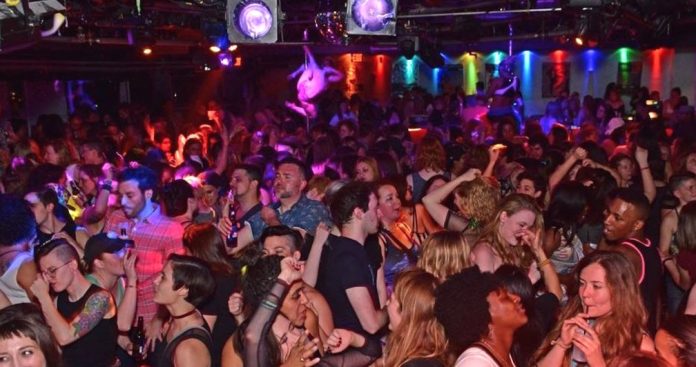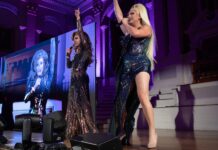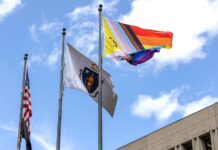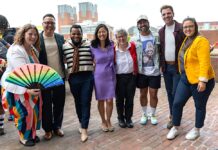
On Saturday, November 11, Dyke Night is hosting its final Second Saturdays at Machine. But its founder Kristen Porter wants everyone to know that there will still be Dyke Night special events and other gatherings catering to and celebrating not only the lesbian crowd but also other portions of the greater queer community.
According to a November 9 WBUR NPR radio report, “Porter has noticed a shift in the scene away from lesbian-specific events. When Dyke Night moved from [the Somerville club] Toast to Machine 10 years ago, Porter called it ‘Second Saturdays’ so that trans and gender-nonconforming people would feel welcome. At the same time, she noticed that younger members of the LGBT community were seeking out such spaces less and less—the success of the gay rights movement meant they could now assimilate into mainstream society.”
According to WBUR:
Kristen Porter founded Dyke Night in 1998 when she was working with the Lesbian AIDS Project of Massachusetts. The grassroots organization was not a nonprofit and could not apply for grant money, so they needed some other way to raise funds.
“We were trying to figure out, in my living room, how are we going to raise some money to pay for all this stuff that we want to do every week?” Porter says. “ ‘Let’s throw a party,’ somebody said. ‘Great, what are we gonna call it?’ ‘Let’s call it Dyke Night.’ ”
The title was meant as a political statement, a reclamation of a nasty slur. And the event was massively successful — so much so that Porter decided to keep running it even after the Lesbian AIDS Project disbanded, and to continue donating the profits to activist causes. She started out at The Midway in Jamaica Plain, moved to Toast Lounge in Somerville and eventually landed at Machine. The transition from neighborhood bars to the larger nightclub was prompted in part by the night’s overwhelming popularity, according to Porter.
“The night was the only gig in town,” she says. “One of the reasons we thought the party would work [as a fundraiser] is because we also felt like we were fulfilling a social need.”
Porter also told WBUR that “she wants to turn her attention to the over-40 set. ‘I started in my 20s, I’m now almost 50, my interests and what I see as the needs for the community is different than when I started,’ she says.”








